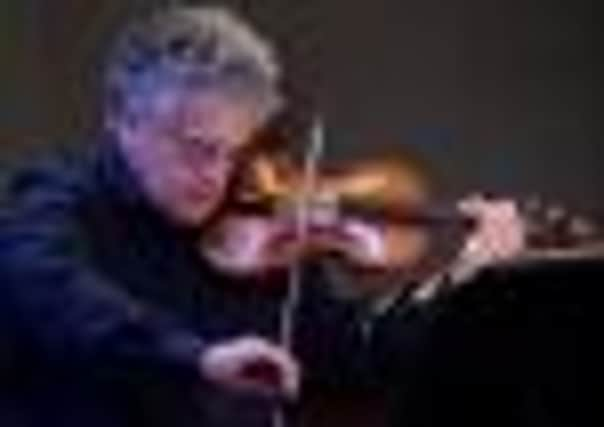Making music, but not as others know it


Ask anyone to list Yorkshire’s big cultural events and they’ll probably name the Ilkley Literature Festival, perhaps Leeds Festival or the Bradford Mela, maybe even Leeds’s West Indian Carnival or Harrogate International Festival. But the chances are that relatively few will instantly think of the Huddersfield Contemporary Music Festival.
Although now in its 35th year, the event hasn’t quite appeared on the county’s radar like other red letter days. But then its whole raison d’être is to be unlike anything else currently being staged.
Advertisement
Hide AdAdvertisement
Hide Ad“We basically celebrate music which is non-mainstream,” says Graham McKenzie, who has been the festival’s artistic director since 2006. “So everything from ‘noise music’ to orchestral music at the other end of the spectrum.”
But that’s not to say the HCMF, which does everything from tinker with traditional composition to produce experimental and, at times, bizarre pieces, doesn’t pull in a large and lucrative audience.
It is estimated that, throughout most of November, HCMF visitors pump around £1.2m into the local economy. And although half of those visitors come from within an hour’s drive of Huddersfield (proving they have a regional audience) the box office also spots international ticket purchases.
Crucially, while a growing band of the more pedestrian rock and pop music festivals have emerged, then floundered, this unconventional festival has seen its audience remain steady. “I think you’ve seen a lot of the boundaries between genres come down,” says McKenzie. “And what people view as being music has also broadened out. That all chimes perfectly with what we do.
Advertisement
Hide AdAdvertisement
Hide Ad“These days there’s a whole generation of people who, in years gone by, may have had to focus on a particular instrument or genre, but now they have laptops or low-fi electronic equipment which make what they do far more non-specific and interesting.
“And there’s no understating how much the boundaries have come down. It’s not even just about music, now people are more open to thinking about ‘sound art’, particularly when we’ve recently seen someone win the Turner art prize with a sound installation.”
This momentum is reflected in the huge interest shown in HCMF. As part of a relatively small circuit of contemporary music festivals staged across Europe, it is paired up with one of Britain’s top centres of learning for modern music, Huddersfield University, and a stamp of respectability comes from multiple broadcasts from a team at BBC Radio 3 who’ll be in residence throughout.
The programme itself is a collection of around 50 one-off performances, talks and ongoing installations. This year proceedings are dominated by events celebrating three seminal composers: John Cage, Wolfgang Rihm and Norwegian composer, Pelle Gudmundsen-Holmgreen.
Advertisement
Hide AdAdvertisement
Hide AdTheir work typifies the innovative, unconventional and challenging music which the festival hosts.
Similarly unusual highlights include the BBC Scottish Symphony Orchestra performing a series of works, including one created by composer-in-residence, Norwegian Maja S K Ratjke. And possibly the most thought-provoking performance of all is Koral Koral, an opera designed specifically for babies – and their parents, of course.
The perfect example of modern and traditional comes tomorrow night with the world premiere of Lifelines, a new piece by world-renowned composer and multi-instrumentalist John Surman. The work has been specially written for the male voice choir from the tiny village of Bolsterstone in South Yorkshire. With over 80 members, ranging in age from teens to their 80s, the award-winning singers have been meeting weekly since 1934.
The catholic mix is one which McKenzie is convinced will keep the visitors rolling in too. “These days we have so many means of listening to so much music via technology,” he says.
Advertisement
Hide AdAdvertisement
Hide Ad“But that only makes the communal, shared experience of listening to such unusual music feel all the more special.”
WHY THE HCMF IS THE BIGGEST AND BEST IN BRITAIN...
HCMF is one of an elite cluster of hit contemporary music festivals held in Europe.
In the space of ten days some 11,000 people descend on Huddersfield.
Visitors come to the HCMF from as far afield as Japan and New Zealand.
Advertisement
Hide AdAdvertisement
Hide AdThe HCMF has hosted 381 world premieres and 813 UK premieres.
The festival runs until November 25 at various venues around Huddersfield town centre. To find out more visit www.hcmf.co.uk or call the box office on 01484 430528.